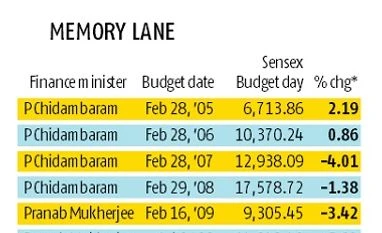The tenure to qualify for LTCG for share sales of listed companies was expected to be increased to 24 months, from the existing 12 months. While the tenure has not been changed, the Budget proposes to amend the rule to make any off-market share purchase where Securities Transaction Tax (STT) is not paid, and the holding period is a year or more, liable for a flat tax of 10 per cent. All transactions after October 1, 2004, and where the sale is made after April 1, 2017, will be liable. Currently, the LTCG tax on gains from these transactions is zero.
“LTCG exemption will be available only if STT is paid both at the time of acquisition and divestment,” said Amrish Shah, executive director at consultancy EY India. This will include, for instance, shares acquired in a private company which got listed subsequently, where divestment after listing is through a stock exchange or listed shares were acquired off-market in a private deal but sold on an exchange.
“With the proposed amendment, the CBDT circular would be void,” said Riaz Thingna, director, Grant Thornton Advisory. The indirect transfer provisions will continue to apply to category-III FPIs, largely individuals and family offices.
In the last Budget, the additional dividend tax (ADT) of 10 per cent was levied on three categories of resident investors: Individuals, Hindu undivided families, and firms (both limited and unlimited liability partnership firms) if their dividend receipts exceeded Rs10 lakh. Now, the Finance Bill proposes to expand the coverage by resorting to an exception method. “Any resident shareholder, except for a domestic company, specific institutions and charitable institutions and trusts under income-tax Act, is now included. This means now even non-exempt private trusts (family trusts or otherwise) may have to shell out the extra 10 per cent ADT,” said Ravi Mehta, partner, Grant Thornton India.
Buoyed by the success of the further fund offer (FFO) of its Central Public Sector Enterprise Exchange Traded Fund, the government will aim to launch another CPSE ETF with a new basket of companies in the coming financial year. “Government will put in place a revised mechanism and procedure to ensure time-bound listing of identified CPSEs on stock exchanges,” the Budget document stated.
Thus far, there have been two tranches of ETFs from the government. The recent FFO, managed by Reliance Nippon Life Asset Management, was subscribed 2.3 times, with applications worth over Rs13,000 crore against the issue size of Rs6,000 crore.
Further, with an aim to continue divesting stake in state-owned companies, the government said it wanted to list railway public sector enterprises such as IRCTC, IRFC and Ircon on the stock exchanges. IRCTC is an online rail ticket booking entity. IRFC is a dedicated financing arm of the ministry of railways, while Ircon is a specialised construction organisation.
The Budget has proposed to phase out tax benefits of up to Rs25,000 on investments under the Rajiv Gandhi Equity Savings Scheme, which provides for tax benefits under Section 80CCG of the Income Tax Act.
The government issued a clarification with respect to the merger of mutual fund (MF)schemes. The Budget proposes to take into consideration the holding period of units held in the erstwhile schemes for taxation purposes. Further, the cost of acquisition of the units in the consolidated plan will be the cost of units in the merged plan. The amendments take effect from April 1 and will be applicable in assessment year 2017-18.
The government in 2016 had provided tax neutrality on the transfer of units in a consolidating plan of MF schemes. However, the holding period remained a grey area. The clarification is expected to boost scheme mergers.
The government has also eased the selection process for members of the Securities Appellate Tribunal, revoking a rule that bars officials from the Securities and Exchange Board of India from becoming members at the former. There is no such bar on officials of other regulators, as with pensions or insurance segments. With inputs from Pavan Kumar Burugula, Shrimi Kumari Choudhary, and Chandan Kishore Kant
To read the full story, Subscribe Now at just Rs 249 a month
Already a subscriber? Log in
Subscribe To BS Premium
₹249
Renews automatically
₹1699₹1999
Opt for auto renewal and save Rs. 300 Renews automatically
₹1999
What you get on BS Premium?
-
Unlock 30+ premium stories daily hand-picked by our editors, across devices on browser and app.
-
Pick your 5 favourite companies, get a daily email with all news updates on them.
Full access to our intuitive epaper - clip, save, share articles from any device; newspaper archives from 2006.
Preferential invites to Business Standard events.
Curated newsletters on markets, personal finance, policy & politics, start-ups, technology, and more.
Need More Information - write to us at assist@bsmail.in
)